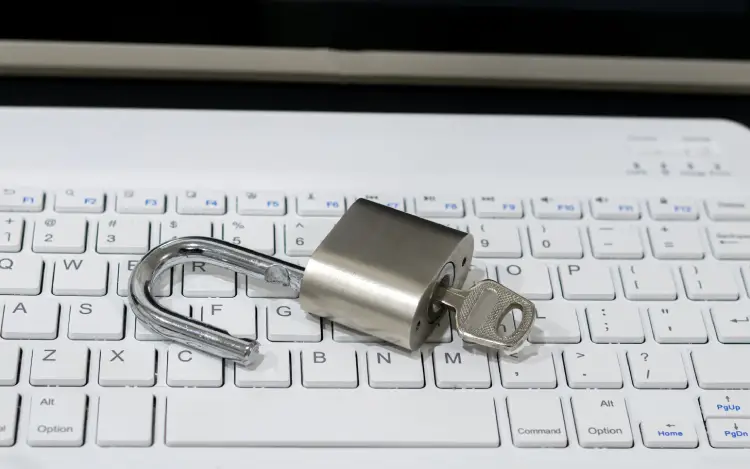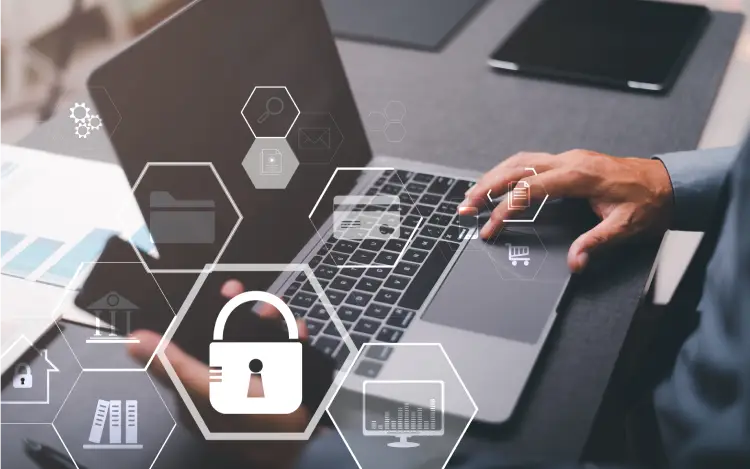The internet is a playground of convenience, but it’s also a hunting ground for cybercriminals. Whether you’re shopping, gaming, or simply scrolling through social media, your data is always at risk. The good news? A few smart habits can keep you protected. These online security tips will help safeguard your personal information and keep cyber threats at bay.
1. Strengthen Your Passwords—And Stop Using the Same One Everywhere
If your passwords look something like "password123" or "qwerty," you might as well hand hackers the keys to your accounts. A strong password is your first line of defence.
Use a mix of uppercase and lowercase letters, numbers, and special characters. Longer is better—aim for at least 12 characters. And don’t reuse passwords across different sites. If one account gets compromised, you don’t want it to be a free pass to everything else you own.
Struggle to remember them all? A password manager does the heavy lifting for you. It stores and autofills your credentials, so you only need to remember one master password.
2. Beware of Phishing Scams—They’re More Convincing Than You Think
Phishing scams have evolved. Gone are the days of poorly written emails from "Nigerian princes." Now, scammers craft messages that look nearly identical to legitimate companies.
If you receive an email or message urging you to click a link, take a step back. Check the sender’s email address, hover over links before clicking, and never enter personal information unless you’re 100% sure of the source.
Even texts and phone calls can be phishing attempts. If a bank, retailer, or even an online casino claims there’s an issue with your account, contact them directly using official channels—not the number or link provided in the suspicious message.
3. Use Two-Factor Authentication—That Extra Step Is Worth It
Two-factor authentication (2FA) adds an extra layer of security beyond just a password. Even if someone manages to steal your credentials, they’d still need a second verification step—like a code sent to your phone—to gain access.
Most banks, email providers, and online casino sites offer 2FA. Activating it takes seconds but significantly reduces your risk of being hacked. Whenever a platform gives you the option, use it.

2FA
4. Keep Software and Devices Updated—Yes, Even Those Annoying Updates
You know those software update notifications you keep ignoring? They exist for a reason. Updates don’t just add new features—they patch security vulnerabilities.
Hackers actively exploit weaknesses in outdated software, so keeping your operating system, apps, and antivirus programs up to date is essential. Enable automatic updates whenever possible to stay protected without the hassle.
5. Avoid Public Wi-Fi for Sensitive Transactions—Or Use a VPN
Public Wi-Fi networks at cafés, hotels, and airports are convenient but dangerously insecure. Cybercriminals can easily intercept data on these networks, putting your passwords, banking details, and personal information at risk.
If you must use public Wi-Fi, avoid logging into sensitive accounts. A better option? Use a virtual private network (VPN). A VPN encrypts your connection, making it much harder for hackers to snoop on your activity.
6. Be Selective About What You Share Online
Social media makes it easy to overshare. But the more personal details you post, the easier it is for scammers to piece together information about you.
Think twice before sharing your location, birthday, or even the name of your first pet—common security question answers. Cybercriminals can use these details to impersonate you or guess your passwords.
And be especially cautious with direct messages. If a friend suddenly sends you a suspicious link, their account may have been hacked.
7. Secure Your Online Payments—Not Every Website Is Trustworthy
When shopping or depositing money online, always check that the website is secure. Look for "https://" in the URL—the "s" stands for "secure" and means your data is encrypted. If a site only shows "http://" (without the "s"), avoid entering any personal information.
Use credit cards or trusted payment services like PayPal rather than debit cards. Credit cards offer better fraud protection, and you can dispute charges if something goes wrong.
If you gamble online, stick to reputable online casino sites that use encrypted transactions and verified payment methods. If a site looks sketchy, trust your gut—there are plenty of legitimate platforms to choose from.

Secure Online
8. Log Out of Accounts When Using Shared Devices
It’s easy to forget to log out, especially on a shared or public computer. But leaving accounts open can give the next user access to your personal data.
Always sign out when you’re done, and clear the browser history if you’ve entered sensitive information. If you use your phone or personal laptop, enabling auto-lock with a strong passcode adds another layer of security.
Final Thoughts
Staying safe online doesn’t require expert knowledge—just smart habits. By following these online security tips, you can significantly reduce your risk of falling victim to scams, hacks, or data breaches.
Cybercriminals are always looking for weaknesses, but most attacks succeed because of simple mistakes—weak passwords, clicking suspicious links, or using unsecured networks. Taking small precautions, like enabling two-factor authentication or using a VPN, can make all the difference.
Whether you're shopping, banking, or playing on online casino sites, keeping security in mind will protect both your money and your peace of mind. The internet is full of opportunities, but staying cautious ensures you enjoy them safely.






